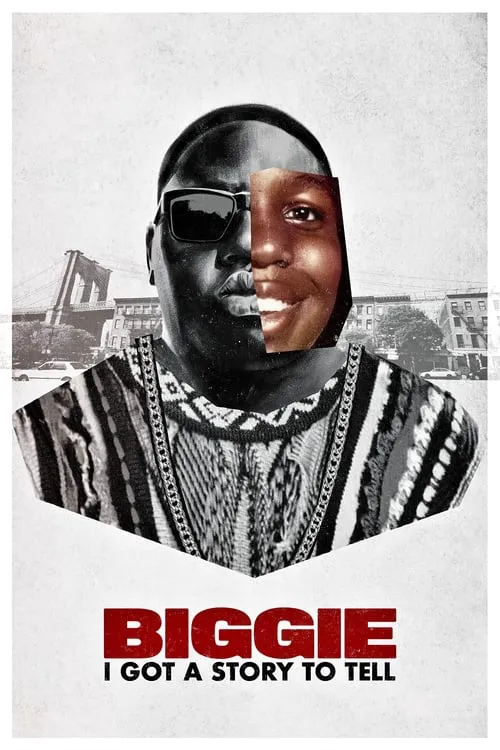Biggie: I Got a Story to Tell

Plot
Biggie: I Got a Story to Tell is a documentary that delves into the life and times of Christopher George Latore Wallace, affectionately known as The Notorious B.I.G. or simply Biggie. Born and raised in Brooklyn, New York, Biggie rose to become one of the most iconic figures in hip-hop, leaving an indelible mark on the genre through his raw, unfiltered, and deeply autobiographical lyrics. Directed by Emerging The Rage and Nick Broomfield's protégé, Rage's film serves as a nostalgic tribute to Biggie's life, showcasing an extensive collection of behind-the-scenes footage that captures the late rapper's essence. From intimate moments backstage to public performances that electrified audiences, the documentary offers a poignant glimpse into Biggie's world. Growing up in Bedford-Stuyvesant, Brooklyn, Biggie faced a tough upbringing, plagued by poverty, violence, and the struggle to make a name for himself. Despite the hardships, Biggie found solace in music and began cultivating a passion for rapping. Alongside a tight-knit circle of friends, including his childhood friend, Junior M.A.F.I.A. member, and fellow rapper, Lil' Cease, Biggie honed his craft and crafted a unique style that resonated with the masses. As Biggie's fame grew, so did his influence, earning him the admiration of fans worldwide. The Notorious B.I.G.'s rise to stardom wasn't without challenges, though. His journey was marred by controversy, drama, and, ultimately, tragedy. On March 9, 1997, Biggie's life was cut short in a brutal shooting in Los Angeles, California, while leaving a party at the Petersen Automotive Museum after attending the Soul Train Music Awards. Biggie's sudden passing sent shockwaves through the hip-hop community, leaving fans devastated and questioning the violent fate that awaited the young star. Throughout the documentary, close friends and family members share heartfelt testimonies that pay tribute to Biggie's memory and legacy. From DJ Premier to his former fiancée, R&B singer Faith Evans, they recount cherished moments and stories that illuminate Biggie's genuine nature, kind spirit, and unwavering dedication to his art. The film also features interviews with Biggie's mother, Voletta Wallace, who courageously confronts the complexities of her son's life. One of the documentary's most endearing aspects is the way it captures Biggie's vulnerability and openness, both on and offstage. Interviews with Biggie reveal a young man consumed by the desire to succeed, driven by a sense of responsibility to his family and a yearning for validation. Rarely, if ever, seen on camera, these intimate glimpses humanize Biggie and remind viewers that, despite his larger-than-life persona, he was, in fact, just a young person trying to navigate the world around him. The documentary also delves into Biggie's tumultuous relationship with Tupac Shakur, another hip-hop icon, whose life was cut short in a separate shooting a few months after Biggie's. The East Coast-West Coast hip-hop rivalry fueled the tension between the two camps, with Biggie's Death Row Records affiliated rivals pitted against Tupac's East Coast affiliated crew. While neither Biggie nor Tupac ever explicitly addressed the perceived rivalries and their implications in their lyrics, their legacies continue to be a central point of debate and reflection in hip-hop circles. The legacy of Biggie Smalls, The Notorious B.I.G. continues to captivate new generations of fans and rappers, who draw inspiration from his raw, unvarnished narratives and poignant rhyme schemes. His music stands as a testament to his enduring spirit, and "I Got a Story to Tell" lovingly recounts the story of a life that, unfortunately, was cut short but has left an indelible mark on music.
Reviews
Recommendations




